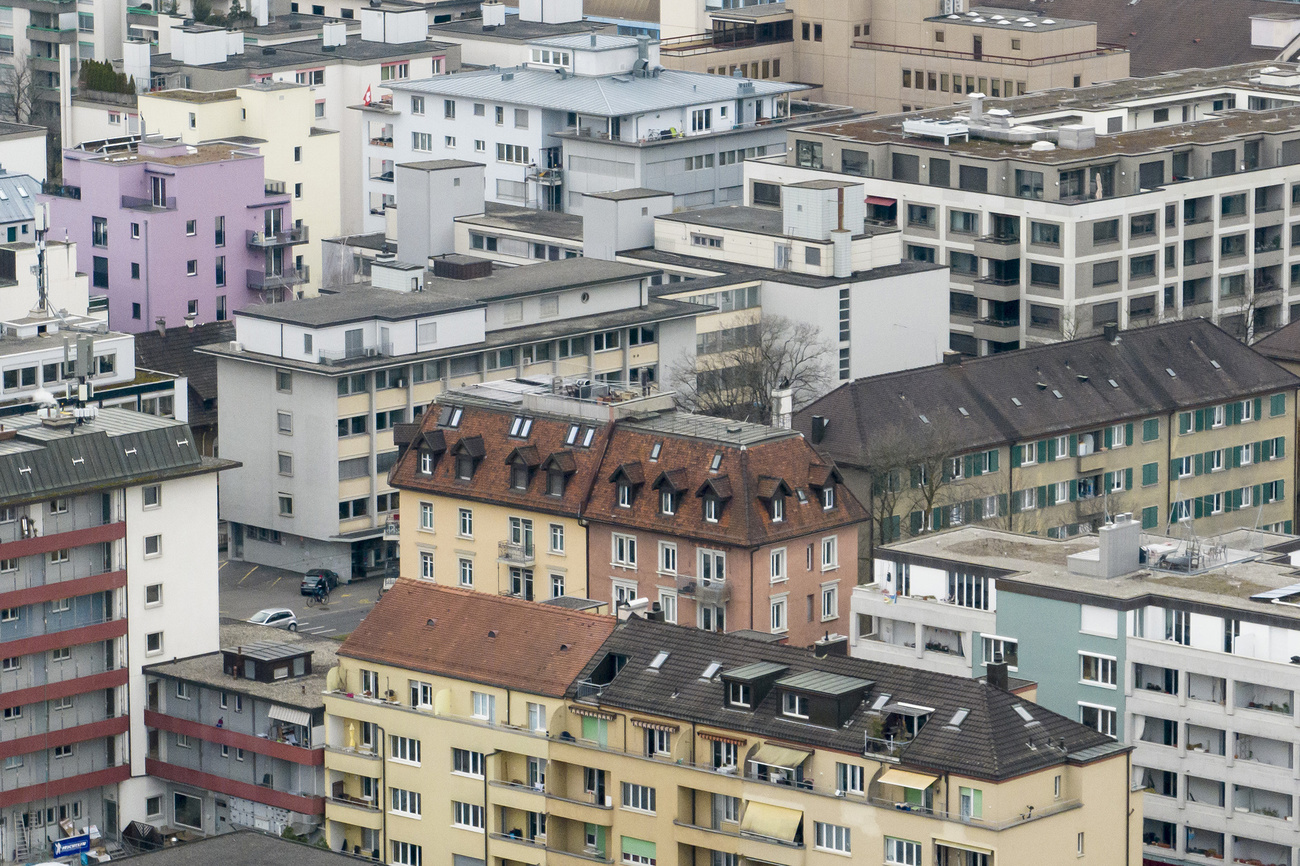
Swiss party calls for additional storeys for urban housing

Residential buildings in Swiss cities should be made one or two storeys taller wherever possible to create more living space, according to the centre-right Radical-Liberal party.
Do you want to read our weekly top stories? Subscribe here.
There is hardly any free space left in cities for building developments, Raphael Karlen, a board member of Radical-Liberal Urban, which was founded six years ago, told reporters in Bern on Monday. The solution to creating more living space in cities and preserving green spaces in urban areas is to build them taller, he says.
+ ‘Myth’ of spiking Swiss rents comes under scrutiny
The centre-right party is urging Swiss cities to adapt their building and zoning regulations so that houses can systematically be built one storey higher than they are today. This additional storey should be used for residential purposes, it argues. However, the Radical-Liberal Party wants to allow exceptions, such as listed buildings.
+ Why is Switzerland a ‘country of tenants’?
“Building the city within the city” is how Simone de Montmollin, a Radical-Liberal parliamentarian from Geneva, described their demand for densification. This is an old method: back in the 16th century, houses in Geneva were built higher to create living space for Huguenots who had fled from France.

More
Tough Swiss housing market drives densification, study finds
Thanks to a law passed in 2008, it is already possible to add storeys to buildings in Geneva. The opportunity to build 150 new flats per year in Geneva using this measure may not seem like much, but nationwide it could become thousands. The party is thus urging cities and cantons to make additional storeys possible.
In Zurich, the Radical-Liberals, the Liberal Greens, the Swiss People’s Party, and the Centre have launched a popular initiative in favour of adding storeys to existing properties. Their aim is not to create an incentive to demolish houses and replace them with new buildings and more expensive flats. The four parties were unable to push through their demand in the city parliament.
De Montmollin argued that densification in cities helps stop urban sprawl, reduce the length of people’s commute and preserve land for agriculture. Furthermore, the additions and renovations can contribute to the transformation to sustainable energy use.
Adapted from German by DeepL/dkk/sb
This news story has been written and carefully fact-checked by an external editorial team. At SWI swissinfo.ch we select the most relevant news for an international audience and use automatic translation tools such as DeepL to translate it into English. Providing you with automatically translated news gives us the time to write more in-depth articles.
If you want to know more about how we work, have a look here, and if you have feedback on this news story please write to english@swissinfo.ch.

In compliance with the JTI standards
More: SWI swissinfo.ch certified by the Journalism Trust Initiative

























You can find an overview of ongoing debates with our journalists here . Please join us!
If you want to start a conversation about a topic raised in this article or want to report factual errors, email us at english@swissinfo.ch.